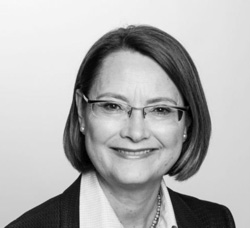Interviewed by Shaazka Beyerle on 4 June 2015.

What are your first impressions of this year’s IRG?
We are at the start of preparations for the St. Petersburg Conference of the States Parties to UNCAC (CoSP) (November 2-6, 2015). I came today [to the UNCAC IRG Briefing for NGOs] to listen to the views of civil society and to take them into consideration when establishing Norwegian positions.
In this, as in other important areas of work, it is always useful to get input from civil society. I have read with interest the UNCAC Civil Society Coalition’s statement paper, including the recommendations regarding civil society participation and transparency in the second cycle of the UNCAC review process.
What were the main challenges?
On civil society – We need to find a way out on the civil society issue because the positions thus far have been far apart. The Universal Periodic Review of Human Rights is an example of a review process that works well. Each country review includes information from the State under review, the Office of the High Commissioner for Human Rights (OHCHR), and national human rights bodies and civil society organizations. There are linkages between corruption and human rights—freedom of expression for persons putting forward claims of corruption is one such example.
On implementation – The accountability and credibility aspects of putting UNCAC into practice are important. Accountability and transparency contribute to building a trusting relationship between governments and people and to more sustainable leadership. Accountability and transparency are also linked to public support and respect for politicians and government. One should never underestimate the wisdom and common sense of people.
On the review mechanism – Corruption goes on in all countries to varying degrees and reflects the situation and history of each country. Thus, UNCAC should act as a unifier. It’s not about countries pointing fingers at each other. The review mechanism covers all States Parties. If we can build upon this commonality we have good possibilities to move forward. UNCAC is a young convention. We need to build trust among the States, as well as between states and civil society at large. Technical assistance is very important for countries in order to do more and to do better. This is an integral part of promoting good governance and hopefully an important objective of the post-2015 agenda soon to be adopted.
What are your expectations for the second round of the UNCAC reviews?
More transparency, more inclusiveness and better implementation of the Convention. My hope is to build a positive agenda where we can learn from each other. Norway will work cross-regionally with colleagues and we place strong emphasis on a close cooperation with civil society. But cooperation doesn’t mean we follow everything from that comes from civil society. As governments, we need to listen to civil society and the input from them helps improve our work. This is my experience and my belief. Civil society is following the issues often at the local level and helps us improve and evolve. Civil society is close to peoples’ challenges. I came to this briefing to tap into their knowledge and experience and to get their perspective on what works for people.
What are your expectations for the CoSP in St. Petersburg?
It’s still early; ask me that question in the fall. Then the picture will be more clear.



